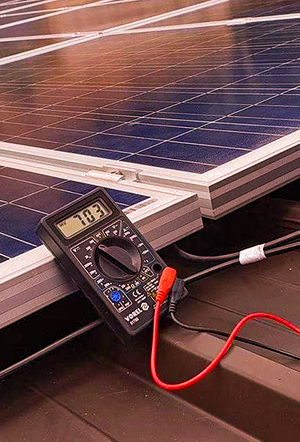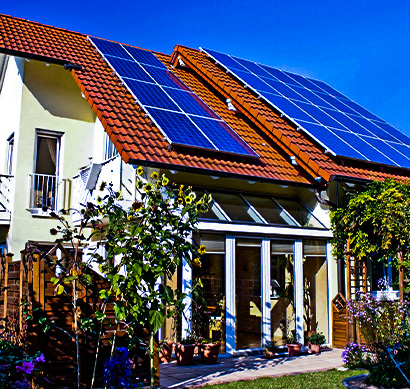



This form of contracting Solar EPC services is one possible form of project management in Solar plant construction. An alternative to Solar EPC lies in commissioning individual construction services from different contractors. Success guaranteed from the very beginning Sustainable, CO2-free solar energy production requires carefully thought-out concepts designed by experienced engineers. Photoelectric is your qualified partner for free-field solar power plants: From the project development to the construction through the operational management of the solar power plant – every step will be realized 100 percent Photoelectric. Photoelectric teams of construction workers, engineers and service technicians.

System engineering,
performance optimization &
cost reduction.

Procurement of modules
and balance of system
components.

Site prep, assembly, wiring, commissioning and grid connection.

Visual inspection of all plant components for mechanical damage.









Today, the term “carbon footprint” is often used as shorthand for the amount of carbon (usually in tonnes) being emitted by an activity or organization. The carbon footprint is also an important component of the Ecological Footprint, since it is one competing demand for biologically productive space. Carbon emissions from burning fossil fuel accumulate in the atmosphere if there is not enough biocapacity dedicated to absorb these emissions. Therefore, when the carbon footprint is reported within the context of the total Ecological Footprint, the tonnes of carbon dioxide emissions are expressed as the amount of productive land area required to sequester those carbon dioxide emissions. This tells us how much biocapacity is necessary to neutralize the emissions from burning fossil fuels.
A carbon footprint is the total amount of greenhouse gas emissions that come from the production, use and end-of-life of a product or service. It includes carbon dioxide — the gas most commonly emitted by humans — and others, including methane, nitrous oxide, and fluorinated gases, which trap heat in the atmosphere, causing global warming. Usually, the bulk of an individual’s carbon footprint will come from transportation, housing and food.

Enter your email address to get register to our newsletter